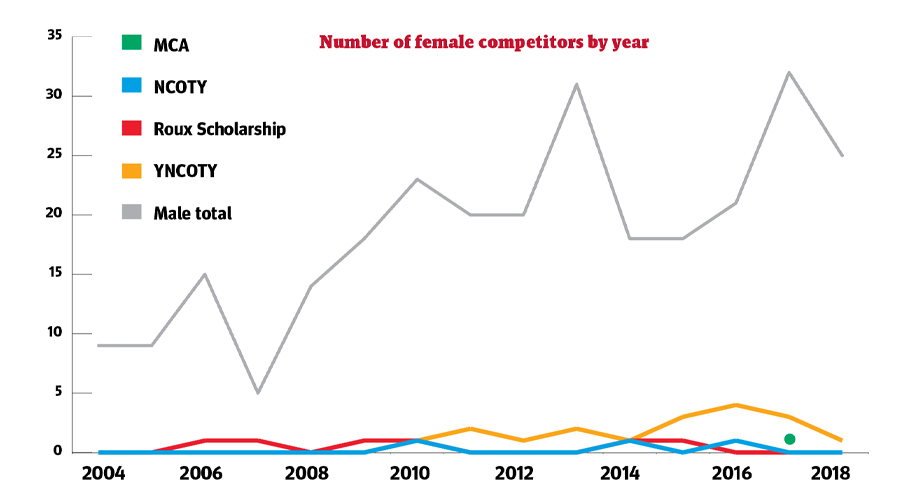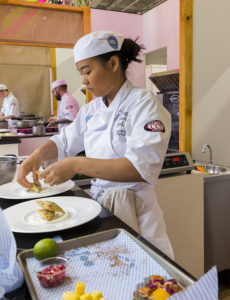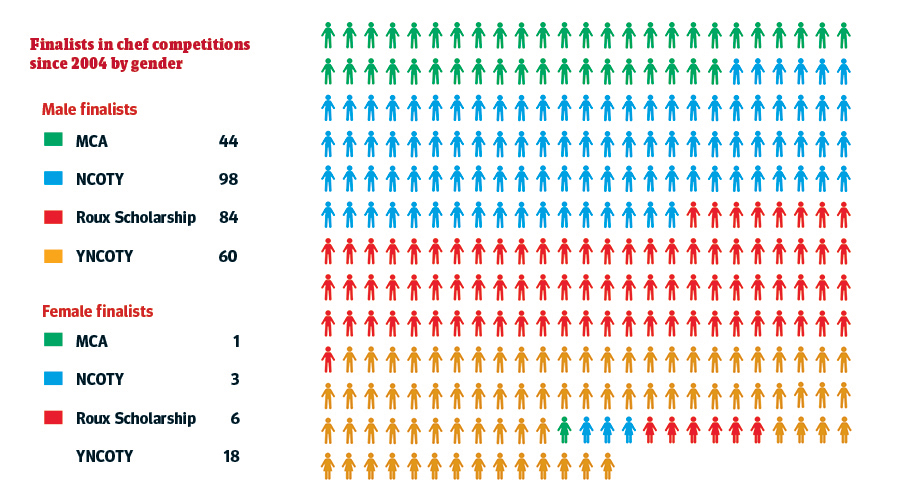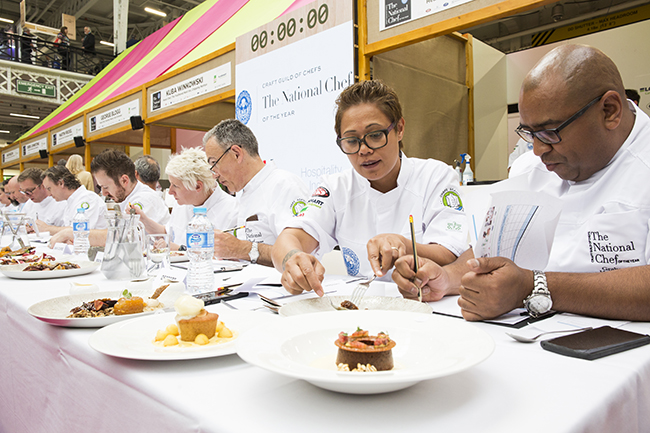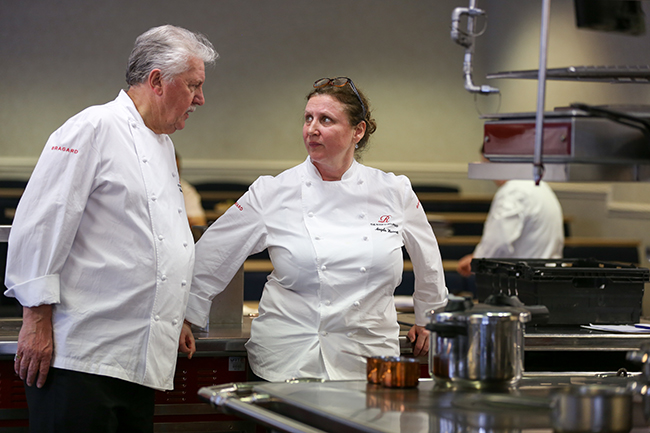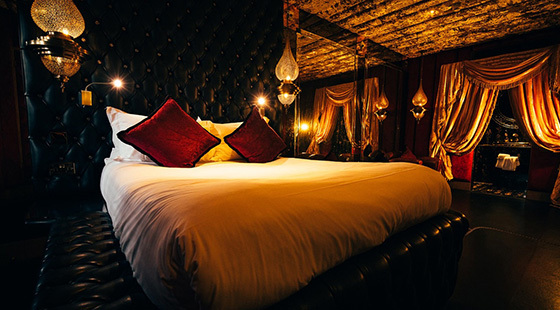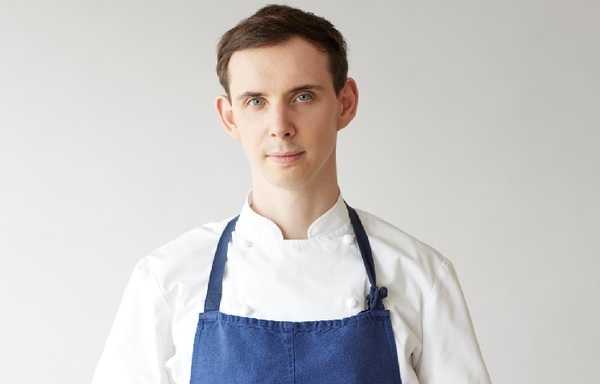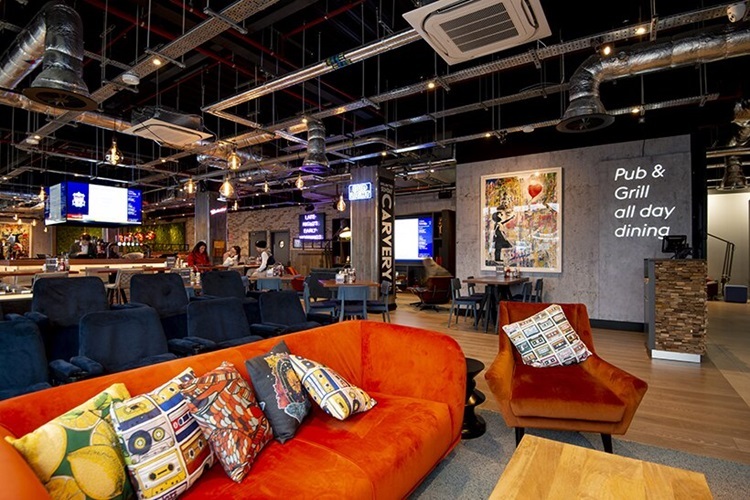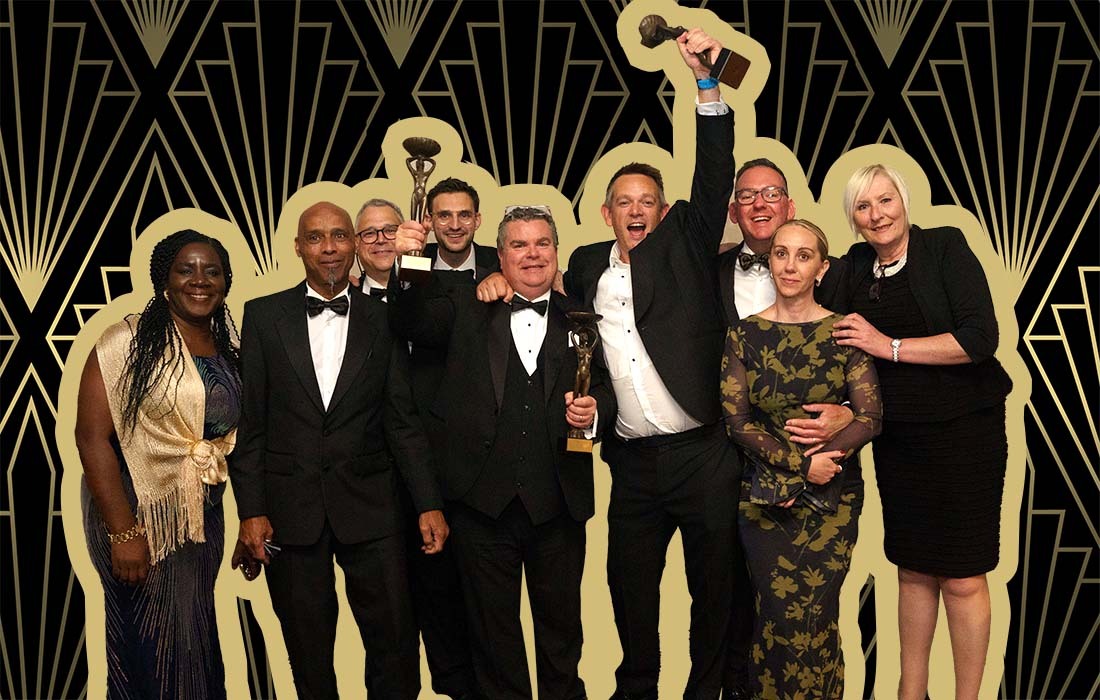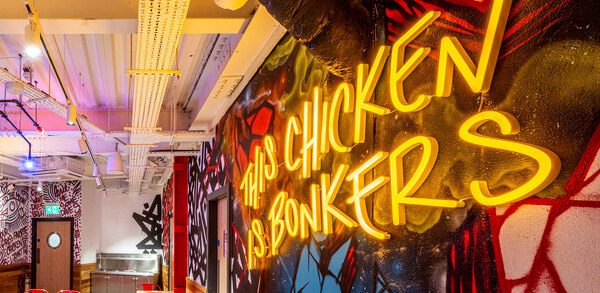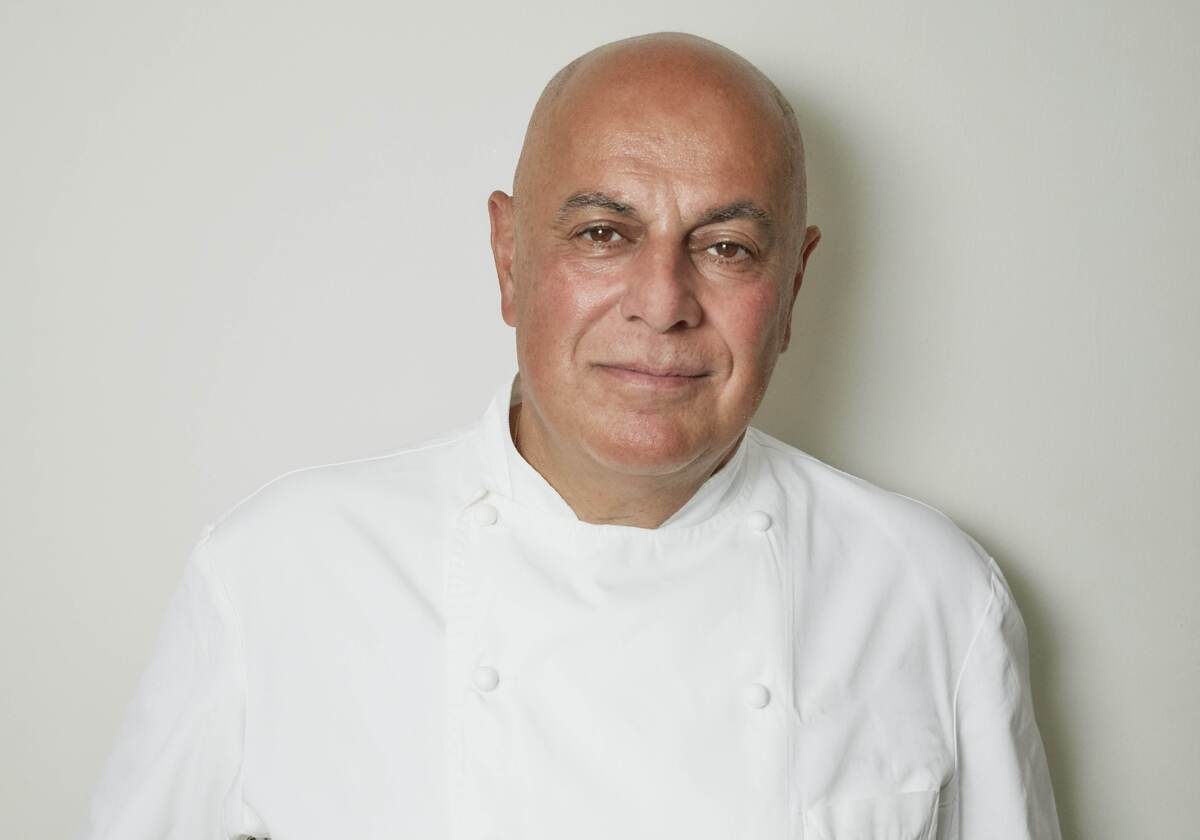Equal to the task: why is there a lack of women in culinary competitions?
There's no battle of the sexes when it comes to chef competitions; although men frequently take the top spot, female chefs are failing to even reach the judging stages. Vincent Wood asks whether it's a question of bias or a lack of opportunity
The hospitality industry is in the midst of an overdue culture shift when it comes to women in kitchens. Role models like Core's Clare Smyth and Darjeeling Express' Asma Khan are making pioneering steps, both in their food and their approach to life behind the pass. Long-held calls for a removal of the hyper-masculine era of kitchens are being answered, albeit slowly. However, in the nation's top culinary competitions, women still appear to be underrepresented.
Between 2004 and 2018, 314 finalist spots were available in the industry's most elite culinary competitions: the Craft Guild's National Chef of the Year (NCOTY) and Young National Chef of the Year (YNCOTY); the Royal Academy of Culinary Arts' Master of Culinary Arts certification (MCA); and the Roux Scholarship. Analysis by The Caterer has found that of those 314, only 28 places were taken by women, with just 22 reaching the final in the last 14 years.
While this could be a reflection of the number of women in the industry in relation to their male counterparts, the numbers are still diminished when compared to female competitors and female chefs in the workplace. Since 2004, women have made up an average of 30% of hospitality workers, but only 8% of top-tier competition finalists.
he 32 Masters named in the history of the competition for cuisine or pastry have been female (Claire Clarke and Yolande Stanley, both pastry chefs).
Stanes said the figures were: âabsolutely not due to any gender bias in judging, but simply a reflection of the industry as a wholeâ, noting that the RACAâs other accolades come closer to gender parity â" such as the Annual Awards of Excellence, which has had 32% female winners since 2005. She added: âLooking at this senior level across the industry, the fact is that there is a greater proportion of male professionals to female.â
Her sentiments are shared by Monica Galetti, who made her name as the first female senior sous to serve in Le Gavroche, London, before opening Mere in Fitzrovia. She said: âIt is possibly a representation that echoes the number of women chefs in the top end of the industry â" and it is at the top end of the industry where these skills to cope in such top competitions are taught.â
Galetti, who also serves as a judge for NCOTY, added: âMere has only been open two years and itâs only now I am able to focus on training up one or two of my chefs to enter in the future. They have come a long way, but still have more to learn before they are ready.â
NCOTY organiser and vice-president of the Craft Guild of Chefs David Mulcahy believes being thrown into the deep end of elite culinary competitions can provide a training ground of its own. He said: âChef competitions in general have always been more popular with male chefs; this is something we are keen to address as a NCOTY team.
âWhile female chefs are currently under-represented in culinary competitions, being part of NCOTY offers so much more than a title or a finalist spot. From personal growth to being part of a fantastic community of like-minded chefs, there are so many opportunities for career and personal development, whatever stage of the competition you get to.â
Entrants are selected without names â" or indeed indications of gender â" attached to their submissions, judged only by the quality of their recipes. This year the number of female entrants overall rose slightly, to 6%. Michel Roux Jr said: âWe agree that the number of female chefs getting through to the finals is disappointing, but the issue is the lack of representation across the industry. We all need to do more encourage young women into this amazing career, following such inspiring chefs as our judges Clare Smyth, Rachel Humphrey and Angela Hartnett.â



